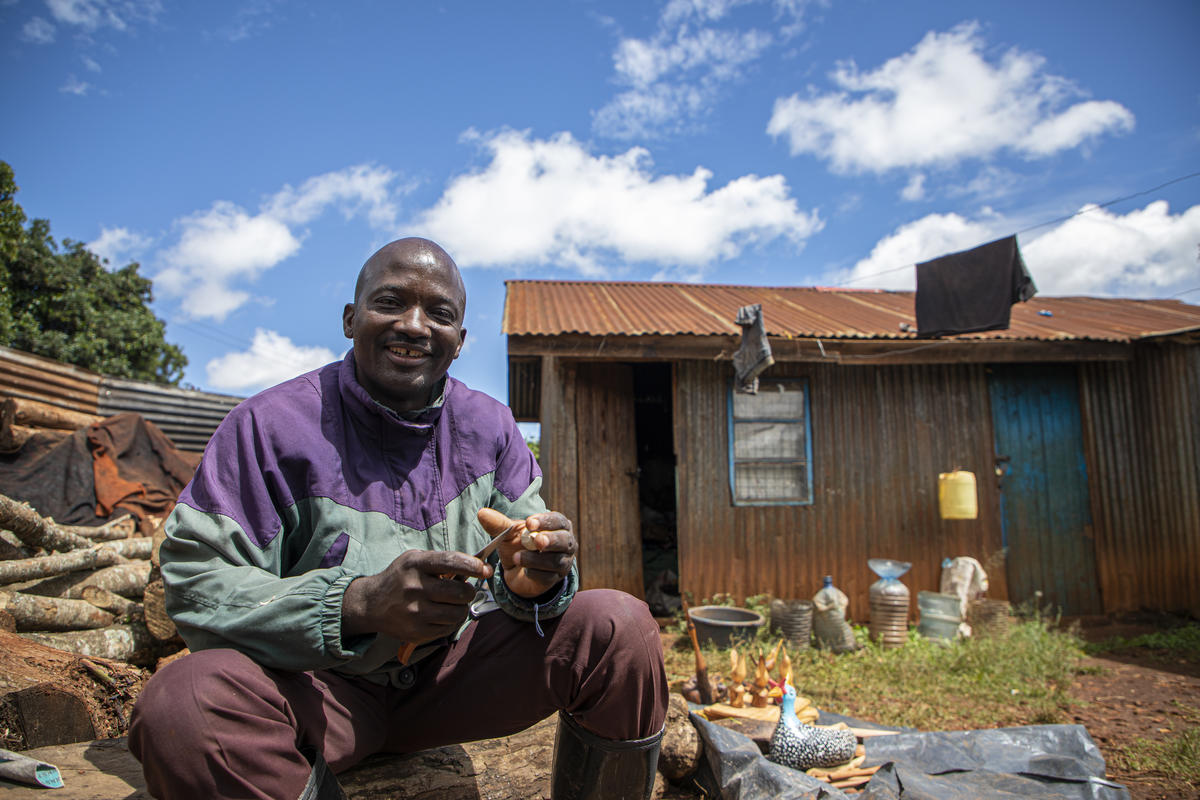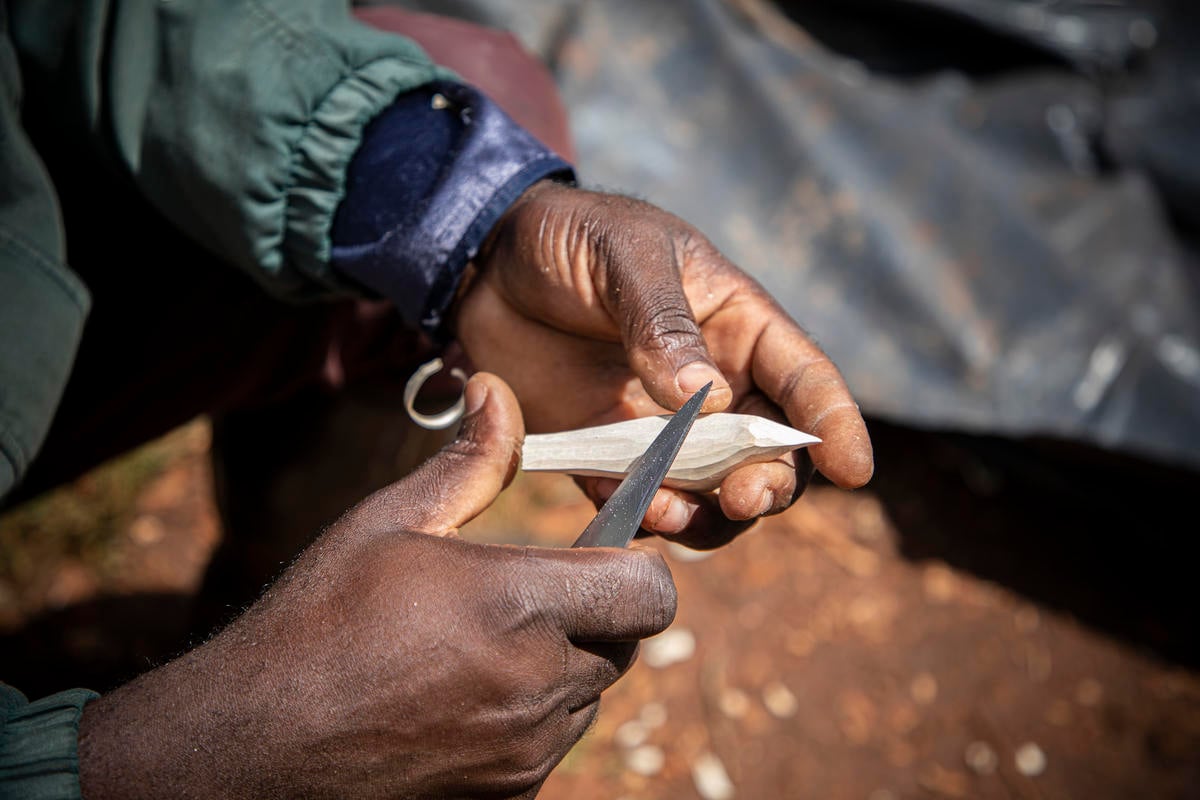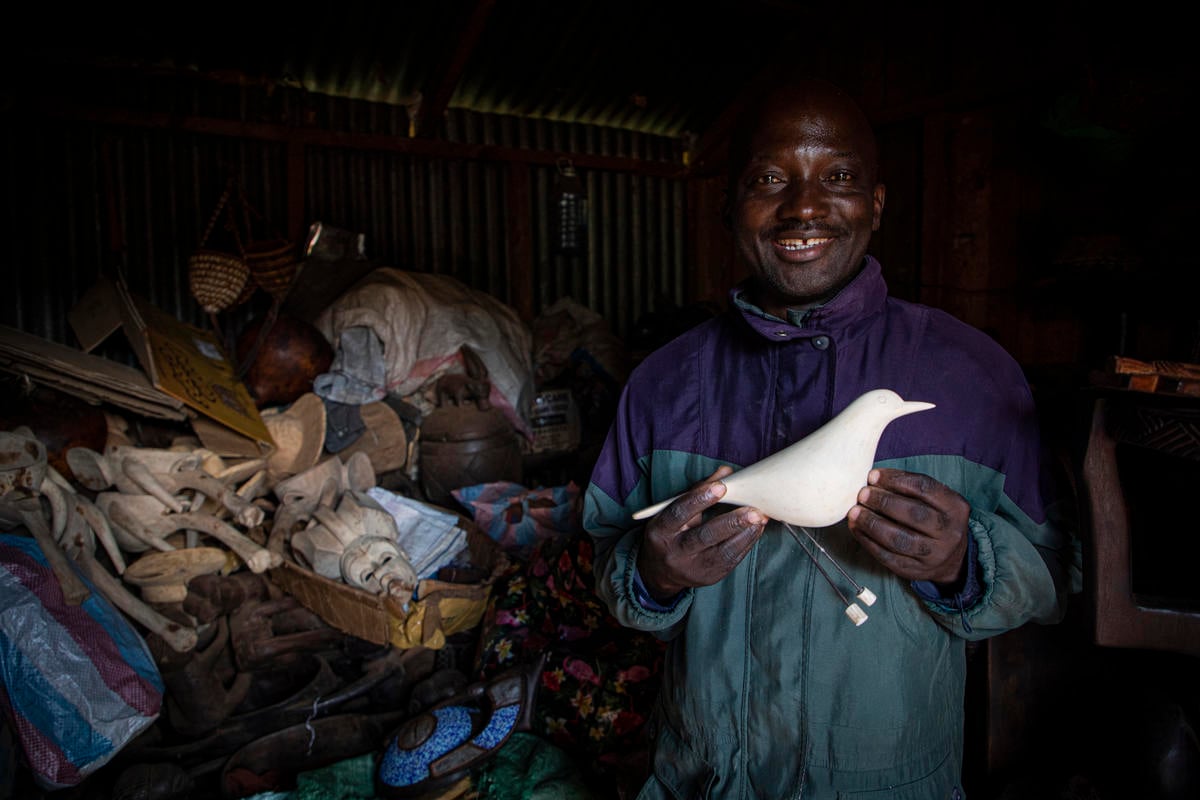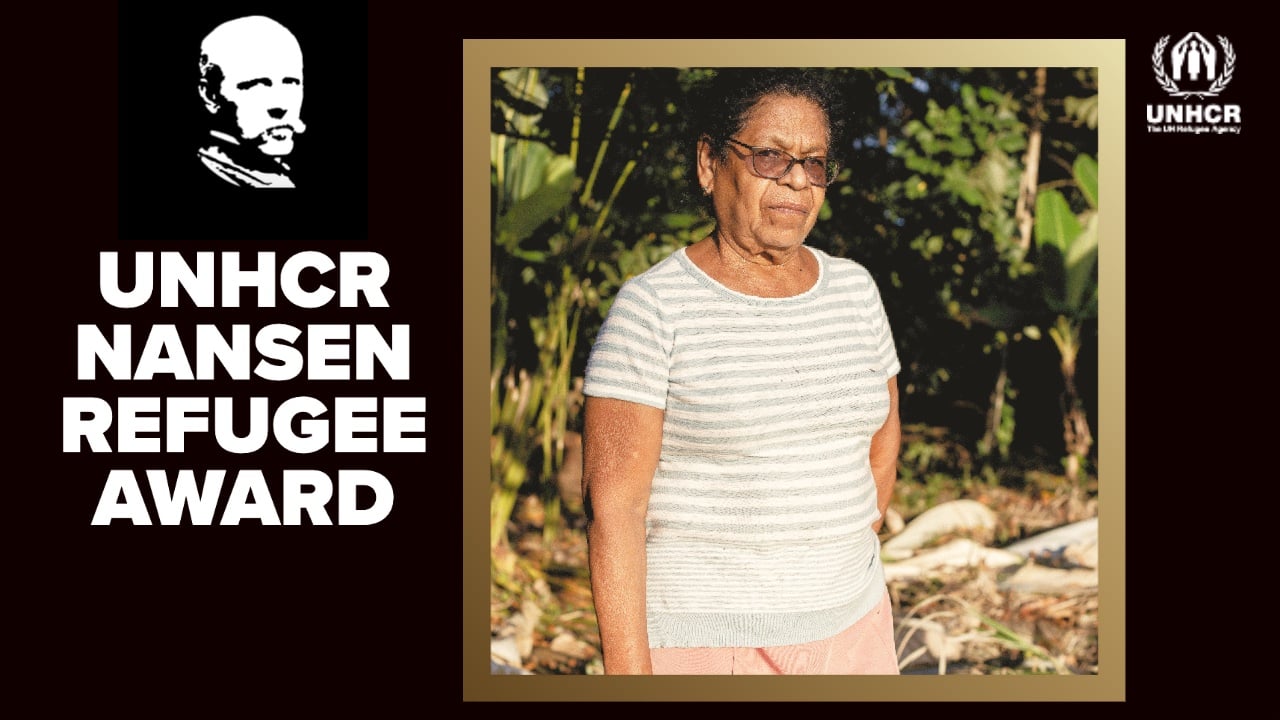Proud camels and peaceful doves: gifts with meaning

Proud camels and peaceful doves: gifts with meaning
As a child, Kapya Kitungwa’s father would return home from the Congolese forest lugging pieces of wood. He would chop and carve until the pieces transformed into masks before Kapya’s eyes. At 14, Kapya made his first mask, a simple one with no decoration. He sold it for one dollar and proudly walked to the local shop to spend his money.
“I told [my father], ‘I want to do this,’” recalled Kapya, 44, who was forced to flee the Democratic Republic of the Congo and now lives in Kenya. “He would make something, then I would make something. That’s how he taught me.”
Kapya used the same types of tools he wielded as a child in the Congo to make a wooden dove for a holiday collection launched this week by MADE 51, an online marketplace for refugee artisans run by UNHCR, the UN Refugee Agency, and partners around the world. Kapya and his team, working for the Nairobi-based social enterprise Mifuko, carved 2,000 of the birds from locally sourced Jacaranda wood, a fast-growing tree.
The MADE51 holiday collection includes 20 ornaments, each symbolizing resilience and solidarity, from 16 countries. The ornaments come in recycled paper giftboxes with cards explaining the meaning behind the item and how it was made.
"I want to continue my craft. I do love it."
UNHCR launched MADE51 in 2018 to help refugees earn money and to introduce refugee artisans to global markets. Many of the refugee communities had access to raw materials and the skills to create products but lacked support. MADE51 brought the refugees together with social enterprises that could help with marketing and logistical support as well as offer advice on consumer trends and design.
A support network is especially important now. The coronavirus pandemic, which has killed more than 1.3 million people worldwide, threatens social and economic stability. Refugees, most of whom live in the world’s poorest countries, often depend on the informal economy and therefore are particularly vulnerable. Many have seen their daily wages disappear.
Rania Shrum, 39, and her family were forced to flee the war in Syria and arrived in Turkey six years ago. For the past four years, she’s worked with Bebemoss, a social enterprise in Istanbul. She and her husband have struggled to make ends meet. Since the pandemic began, her husband’s work at a sewing workshop has been unsteady.
As a child, Rania learned how to make dresses for her toys from her mother. When she came to Turkey, she learned how to crochet. She and other Syrian refugee women made the boldly colored “Brave Ibis” ornaments for the MADE51 collection. The ornament pays homage to the Northern Bald Ibis, which lives in parts of Syria.
“My goal for the future is to learn further and more professional ways to craft toys and to be able to craft any crochet [item] I see,” Rania said. “I want to continue in my craft as I do love it.”
Since the pandemic began, many workshops have closed and artisans have had to work at home. A reduction in flights has meant limited cargo space and delays in orders. In India, a shipment of ornaments for the collection barely made it out of the country in time. Still, MADE51 – which had to scrap plans to erect large displays in retail stores to focus on online sales instead – has offered a lifeline to many of the artisans.
In New Delhi, the social enterprise SilaiWali employs Afghan refugees to make rag dolls and more from waste material. Bishwadeep Moitra, who founded the organization with his wife, Iris Strill, said that since the pandemic the women must come collect the materials and then work from home. For the MADE51 holiday collection, the women sewed felt horses – a tribute to their host country, where the horse symbolizes loyalty, speed and energy.
“I can support my family,” said Humaira, who works with SilaiWali. “Once we see people gifting these ornaments to others, we will be very happy because we made them by hand.”
Ola Adeeb, a 21-year-old Syrian refugee living in Jordan, learned how to make the holiday collection’s “Proud Camel” ornament from Mei Hayashi, the founder of Tribalogy, a social enterprise based in Jordan. Hayashi, a graduate of the Fashion Institute of Technology in New York, was teaching crafts to refugees at the Zaatari refugee camp when she spotted paintings by Ola at an exhibition and immediately asked for an introduction.
"I can support my family."
“The concept of her paintings was very dreamy,” Mei said. “For example I saw this painting of a girl who was sitting on top of a hill and basically looking at the sun going down from far away. And actually the sun…is a clock…Her work really caught my eye.”
Mei had seen llama key chains during her travels in Peru and thought similar products – with camels, instead of llamas, to represent the Jordanian desert – would sell well and be easy to ship. She taught Ola how to make them, and soon Ola’s mother and sister-in-law joined her. Ola’s camels have sold in Switzerland and other parts of the world.
Tribalogy employs a team of around 30 women, including locals and refugees, who make the camels and other items. The social enterprise joined the MADE51 network last year and adapted the camel for the holiday collection.
“In the beginning, it was hard to make camels. I almost quit, but Mei and my father encouraged me to keep trying until I was good at it,” said Ola, 21, who someday hopes to study psychology, fashion or dental hygiene. “I make good money...It allows me to buy medication and to help my parents.”
Interviews with artisans conducted by social enterprise partners and UNHCR staff based on questions provided by the writer.













